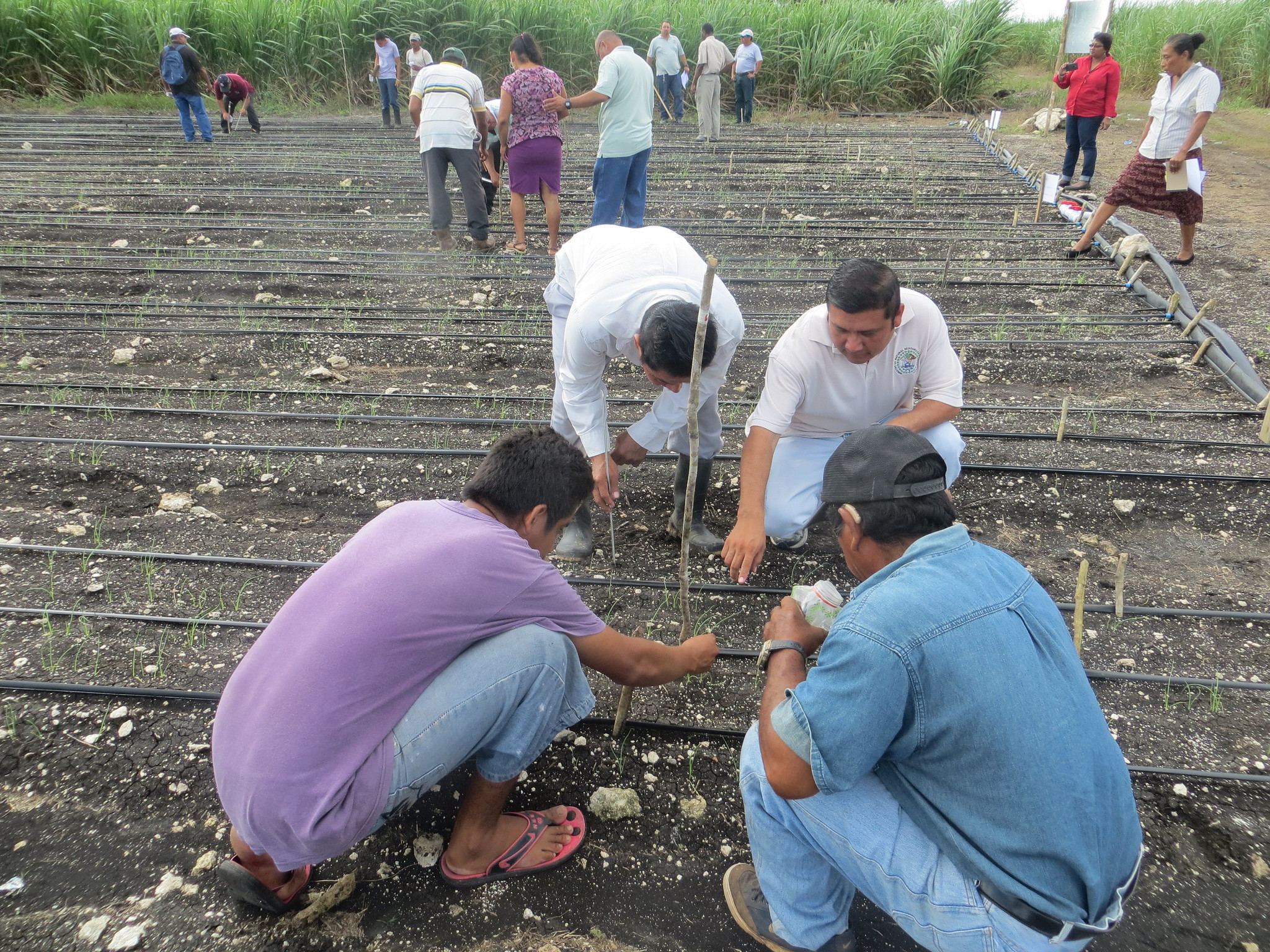Belize builds climate resilience from the ground up

The project – with USD 25 million in financing from the World Bank and technical support of FAO Investment Centre – will focus on scaling up climate-smart agriculture and enhanced sustainability on Belize’s farms.
A matching grant scheme, combined with technical support to around 3700 farmers, is expected to leverage a targeted USD 18.2 million in private financing for climate technologies.
Within its five-year span, the project is expected to contribute to agricultural productivity and food security, and generate livelihoods.
This new project design benefitted from expertise, knowledge and results gained from previous FAO Investment Centre work to support irrigation and drainage planning in Belize.
“We zeroed in on the need for reliable irrigation, water harvesting and drainage in Belize, and designed project investments to maximize benefits for farmers and the agriculture sector, by reducing their vulnerability to climate shocks and extreme weather events,” said Luis Loyola, Irrigation and Rural Infrastructure Engineer, FAO Investment Centre.
Reducing vulnerability with a robust agricultural sector
Like many Small Island Developing States, Belize is vulnerable to catastrophic effects of climate change and climate variability. The country is prone to natural disasters, and already experiences hurricanes, flooding, sea level rise, coastal erosion, coral bleaching, and seasonal droughts. Impacts are likely to intensify with the expected increases in weather volatility and rise in sea temperature.
A robust agricultural sector is crucial in Belize – where more than half the population live in rural areas. The sector is fundamental for economic growth, employment, foreign exchange earnings, and food and nutrition security.
The project will target the four Northern districts of Cayo, Orange Walk, Corozal, and Belize, where climate change is projected to impact key crops, including sugar cane, rice, maize, soybean, vegetables, livestock and fruits.
Investing in climate-smart agriculture and human capital
Climate-smart agriculture is an integrated approach to managing landscapes – cropland, livestock, forests and fisheries – that addresses the interlinked challenges of food security and accelerating climate change.
Some examples of climate-smart agriculture include agroforestry, intercropping, conservation agriculture, crop rotation, integrated crop-livestock management and improved water management.
With climate-smart agriculture techniques, farming communities can adapt to and prepare for climate change impacts in order to preserve – and even improve – their livelihoods. This approach helps farmers to ensure their farms remain viable and productive in a changing climate.
“Belize needs sustainable responses to climate change challenges, and this investment will boost the agriculture sector’s resilience and productivity,” said Soulemane Fofana, Senior Rural Development Specialist from the World Bank. “Targeted investment will stabilize and improve agriculture productivity, lower production costs, and contribute to increases in farmer profitability.”
Farmer groups and collectives will also benefit from cooperative investment and financing for improvements in rural infrastructure.
It is expected that staff from key intuitions that support farmers, including Belize’s Ministry of Agriculture, Food Security, and Enterprise, will develop deeper knowledge on how to reduce agro-climatic vulnerability in the longer term, through targeted technical advice on water conservation, soil preservation, pest and disease management, crop cultivation and post-harvest loss reduction.
Access to climate data is also key for producers to plan their choices of crops, cultivation methods, planting and harvesting schedules. The project will finance investments in upgrading the existing agrometeorological and geo-location system, to enable farmers to take more targeted adaptation actions to weather crises.
The project aims to ensure that farmers and agricultural employees, as well as students from the Agriculture Department of the University of Belize, will benefit from training in improved farming practices, as well as better access to meteorological data. Women producers will receive at least 30 percent of the grants for climate-smart agriculture technologies, with specific institutional training focusing on inclusion and empowerment.
For smallholder farmers in Belize, adapting to climate change now – and preparing for future climate shocks – could mean the difference between perishing, surviving or thriving.
